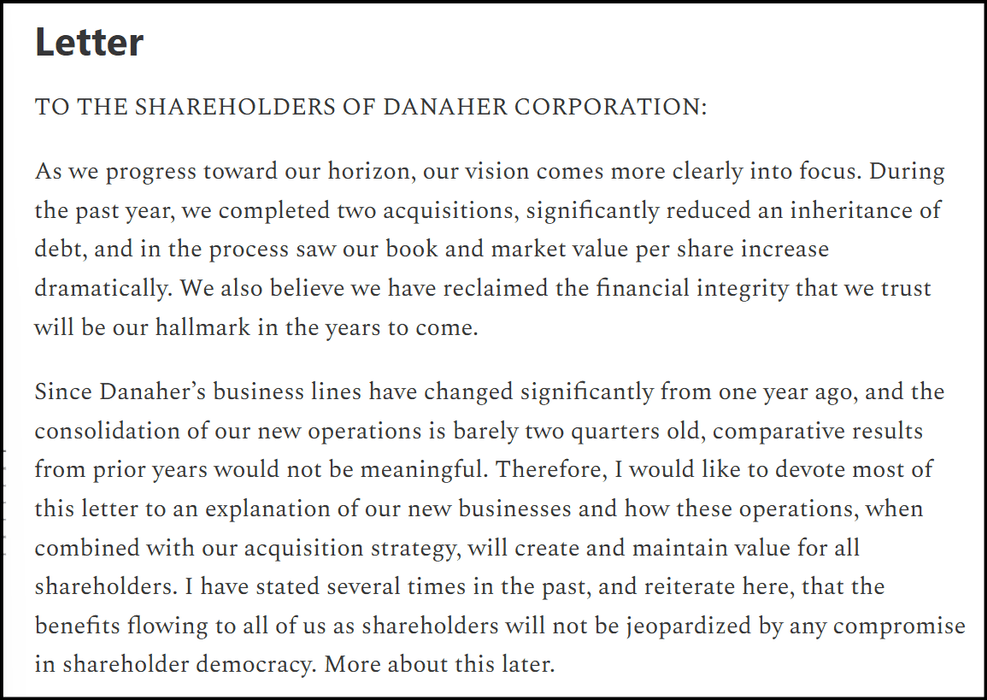Sublime
An inspiration engine for ideas

Product management
Aleksei • 23 cards
Product Management
Product Manager • 20 cards
Clarity of purpose Summarizes the company’s business on the back of a business card. Large markets Address existing markets poised for rapid growth or change. A market on the path to a $1B potential allows for error and time for real margins to develop. Rich customers Target customers who will move fast and pay a premium for a unique offering.... See more
Sequoia Capital • Elements of Enduring Companies
What would change in your company if every executive meeting started with “Did we earn the right to customer growth?”
Jeanne Bliss • Chief Customer Officer 2.0: How to Build Your Customer-Driven Growth Engine


This month marks 40 years since Danaher was founded. And over those 40 years, Danaher has delivered total shareholder returns over 180,000% and is the only US publicly traded company that has outperformed the S&P 500 in every five year period.
Today, I wanted to share with you their very first shareholder... See more
To win with Olay in mass, the company had to bridge the mass and prestige markets, creating what it would come to call a masstige category.
A. G. Lafley • Playing to Win: How Strategy Really Works
Core consumers were a theme too; we pushed businesses to focus on the consumer who matters most, targeting the most attractive consumer segments. Core was the first and most fundamental where-to-play choice—to focus on core brands, geographies, channels, technologies, and consumers as a platform for growth.